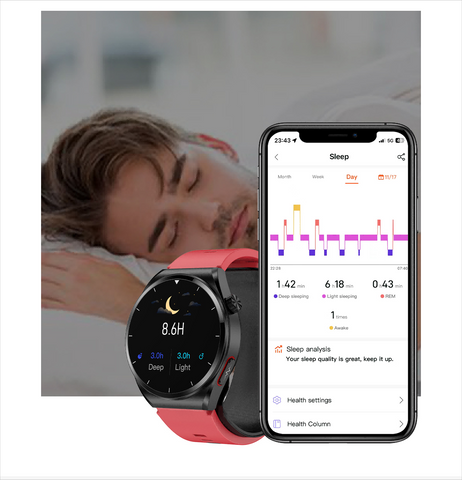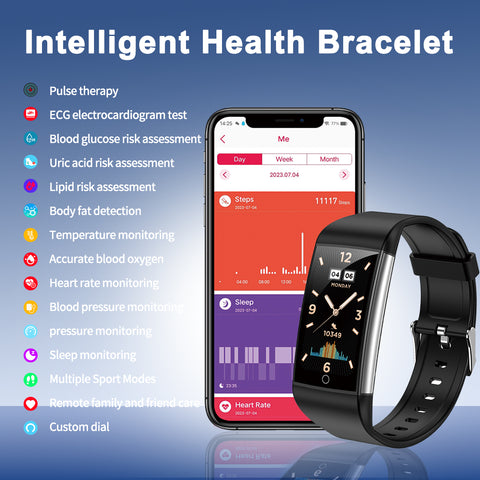Why Skipping Sleep Could Be Bad for Your Waistline
Are you sleeping enough? Sleep often takes a backseat to our long list of priorities. With deadlines to meet, social engagements to attend, and endless entertainment options at our fingertips, it's no wonder that many of us sacrifice sleep to fit it all in. However, mounting evidence suggests that skimping on shut-eye might have more consequences than just feeling groggy the next day. It turns out that skipping sleep could also be detrimental to our waistlines.
Sleep deprivation has long been associated with a myriad of health issues, including impaired cognitive function, weakened immune system, and increased risk of chronic diseases such as diabetes and heart disease. But recent research has shed light on another concerning consequence: weight gain.
Studies have shown that individuals who consistently sleep less than the recommended seven to nine hours per night are more likely to be overweight or obese. But why does lack of sleep lead to packing on the pounds?
-
Disrupted Hormones: Sleep plays a crucial role in regulating hormones that control hunger and satiety. Ghrelin, often referred to as the "hunger hormone," stimulates appetite, while leptin, known as the "satiety hormone," signals fullness. When we don't get enough sleep, ghrelin levels rise, and leptin levels drop, creating a hormonal imbalance that can lead to overeating and weight gain.
-
Increased Caloric Intake: Sleep deprivation can also alter our food preferences and cravings. Studies have found that sleep-deprived individuals tend to crave high-calorie, carbohydrate-rich foods like sweets and salty snacks. Moreover, they often consume more calories overall compared to those who are well-rested, further contributing to weight gain over time.
-
Impaired Metabolism: Lack of sleep can disrupt our body's ability to regulate blood sugar levels and metabolize carbohydrates effectively. This can lead to insulin resistance, a condition in which cells become less responsive to insulin, resulting in elevated blood sugar levels and an increased risk of developing type 2 diabetes. Insulin resistance is closely linked to weight gain and obesity.
-
Decreased Physical Activity: When we're sleep-deprived, we're more likely to feel lethargic and unmotivated to engage in physical activity. This sedentary behavior can further exacerbate weight gain and contribute to a vicious cycle of poor sleep and inactivity.
So, what can we do to protect both our sleep and our waistlines?
-
Prioritize Sleep: Make sleep a priority by establishing a consistent bedtime routine and aiming for seven to nine hours of quality sleep each night. Avoid caffeine and electronic devices before bedtime, as they can interfere with your ability to fall asleep.
-
Maintain a Healthy Diet: Focus on eating a balanced diet rich in fruits, vegetables, lean proteins, and whole grains. Limit your intake of processed foods, sugary snacks, and caffeine, especially in the hours leading up to bedtime.
-
Stay Active: Incorporate regular physical activity into your daily routine, even if it's just a brisk walk or a quick workout session. Exercise not only helps regulate sleep patterns but also boosts mood and energy levels.
-
Manage Stress: Practice stress-reducing techniques such as meditation, deep breathing, or yoga to promote relaxation and improve sleep quality.
And here's where BP Doctor smartwatches come into play. These wearable devices offer advanced sleep tracking functionality, allowing you to monitor your sleep patterns, duration, and quality effortlessly. By leveraging the insights provided by smartwatches, you can gain a better understanding of your sleep habits and make informed decisions to prioritize rest and improve your overall health.
By prioritizing sleep and adopting healthy lifestyle habits, we can not only safeguard our waistlines but also improve our overall health and well-being in the long run. After all, a good night's sleep might just be the missing piece of the puzzle in achieving our health and fitness goals.










